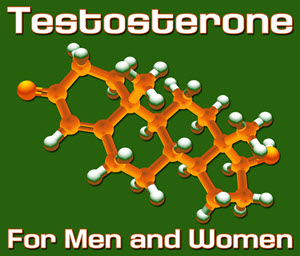Video Link: https://vimeo.com/293251371
Video Download: Click Here To Download Video
Video Stream: Click Here To Stream Video
Testosterone and other Androgen hormones have a strong and potent impact on mental function and wellness.
There are a wide variety of studies that have investigated how Testosterone affects the minds of both men and women. For example, changing female hormone levels are associated with both premenstrual mood changes and post-partum depression. Of course, not all effects of Testosterone on women are adverse, however.
Natural Testosterone Levels benefit sexual desire and emotional health positively for women, in a similar manner as they do in men.
There is strong clinical evidence that shows that Testosterone Deficiency is associated with an increased risk of depression and mood disorders among men,  and research has also shown that Bio-Identical Testosterone Therapy has the power to improve the psychological outlook of male patients taking Low-T Patches, Injections, and Creams for Low-T, but the exact mechanism by which Testosterone alters mood is less well understood.
and research has also shown that Bio-Identical Testosterone Therapy has the power to improve the psychological outlook of male patients taking Low-T Patches, Injections, and Creams for Low-T, but the exact mechanism by which Testosterone alters mood is less well understood.
Recent data produced by the University of Psychiatry and Psychotherapy has shown that Testosterone improves Serotonin signaling in the brain by boosting the volume of proteins that are designed to transport Serotonin.
The study was conducted by scientific researchers at the Medical University of Vienna. Many anti-depressant medications available today work by enhancing the levels of Serotonin active in the brain, whether through the use of Selective-Serotonin Reuptake Inhibitors (SSRIs), or other treatments such as Benzodiazepines and MAO-Inhibitors.
This research shows that a month of Testosterone Restoration and Optimization has an apparent ability to improve Serotonin activity by increasing the volume of protein transporters.
Testosterone-Depression Study Uses Transexuals to Investigate the Effects of Testosterone on Mental Health
Transexuals make up a fascinating subset of individuals which can provide medical researchers with a plethora of data regarding Testosterone's impact on the mind and the body.
The lead investigator for this study was Dr. Georg Kranz, and he explains that people that choose to undergo Hormone Replacement for gender-identity issues feel uncomfortable as their naturally-assigned gender, and seek out Hormone Treatments and Hormone Suppression designed to help them look and feel more like a member of the opposite sex.
Men that undergo treatment for Hormone Reassignment take Bio-Identical Estrogen, and undergo medical therapies that are designed to limit the release and expression of Testosterone.
Women, on the other hand, take Estrogen Inhibitors and are prescribed Recombinant Testosterone Therapy intended to provide them with Testosterone Levels associated with males.
The researchers from the Medical University of Vienna combined their efforts with specialists from the Gynaecology and Nuclear Medicine departments, using  PET-Scans to evaluate the effects of sex hormones on transgendered patients.
PET-Scans to evaluate the effects of sex hormones on transgendered patients.
PET is short for Positron Emission Tomography, and PET-Scans utilize low-dose radioactive substances to assess the internal functions of the body.
After only a month of Testosterone Replacement Treatment, it was discovered that Serotonin Transporter concentrations increased by a significant amount.
Continuing therapy longer than a month improved these concentrations even further, though it is unclear from the study exactly how long these levels continue to rise as a result of treatment. Similarly, Testosterone Levels have been correlated with Serotonin Transporter Levels in other studies as well.
How Does This Serotonin-Testosterone Study Change What We Know about Testosterone and Emotion?
There are many studies that have shown that Testosterone Levels are directly associated with psychological health. For example, SSRIs work by increasing the amount of time that Serotonin is active in the bloodstream and the brain, thereby improving mood and mitigating anxiety for many patients.
Testosterone positively amplifies the effects of SSRIs by increasing the number of proteins that bind with Serotonin in the bloodstream, thereby further improving the activity of Serotonin in the brain.
The combination of Testosterone Replacement, physical activity, and SSRI Treatment has shown the best results for improving mood stability and anxiety  levels in patients with Low-T.
levels in patients with Low-T.
As usual, a comprehensive approach is the best option for patients, tackling mental health issues from multiple angles simultaneously.
This Transgender HRT Study opens the door for further studies designed to evaluate how men and women respond to psychological stress in different ways.
In this study, women have been shown to have fewer Serotonin Transporters than men, and future studies can further elucidate the effects of this gender divide to help provide gender-specific treatments that can improve mental health outcomes for both men and women in the future.
References
How to increase serotonin in the human brain without drugs
Contact Us Today For A Free Consultation

- Testosterone for Women [Last Updated On: December 1st, 2023] [Originally Added On: December 29th, 2013]
- Testosterone Androgen [Last Updated On: December 11th, 2023] [Originally Added On: December 29th, 2013]
- Testosterone and Body Building [Last Updated On: December 14th, 2023] [Originally Added On: December 30th, 2013]
- Testosterone Levels [Last Updated On: December 6th, 2023] [Originally Added On: December 31st, 2013]
- Testosterone Gel, Cream, and the Testosterone Patch [Last Updated On: November 28th, 2023] [Originally Added On: December 31st, 2013]
- Buy Testosterone | Types of Testosterone Replacement Therapy Programs, Injections, Cream and Gel [Last Updated On: December 13th, 2023] [Originally Added On: December 31st, 2013]
- Buy Testosterone Injections Online, Testosterone Prescription for Low T, Testosterone Replacement Therapy [Last Updated On: October 16th, 2020] [Originally Added On: January 1st, 2014]
- Aging and Testosterone Replacement Therapy [Last Updated On: December 12th, 2023] [Originally Added On: January 3rd, 2014]
- What Causes Low Testosterone [Last Updated On: December 10th, 2023] [Originally Added On: January 7th, 2014]
- Hormone Levels in Men [Last Updated On: December 4th, 2023] [Originally Added On: January 12th, 2014]
- Hormone Level Testing [Last Updated On: November 29th, 2023] [Originally Added On: January 13th, 2014]
- Types of Testosterone Products and Delivery [Last Updated On: December 8th, 2023] [Originally Added On: January 22nd, 2014]
- Testosterone Therapy Helps Men with Low-T Ward Off Prostate Cancer [Last Updated On: May 29th, 2024] [Originally Added On: December 29th, 2019]
- The Importance of Dietary Fat for Testosterone Production [Last Updated On: July 8th, 2024] [Originally Added On: January 2nd, 2020]
- Testosterone Deficiency and Low-T at Epidemic Levels Among Men in the United States [Last Updated On: May 27th, 2024] [Originally Added On: May 17th, 2020]
- The Effects of Testosterone Therapy on Male Patients -- Who Should Use Testosterone? [Last Updated On: December 20th, 2023] [Originally Added On: June 16th, 2020]
- Does Ibuprofen Contribute to Low Testosterone? [Last Updated On: January 27th, 2024] [Originally Added On: June 20th, 2020]
- The Link Between Testosterone and Lower Rates of Autoimmune Diseases Among Men [Last Updated On: January 30th, 2024] [Originally Added On: June 21st, 2020]
- Weight Cycling and the Problem with Crash Dieting [Last Updated On: April 8th, 2024] [Originally Added On: July 30th, 2020]
- Reexamining Bio-Identical Testosterone Therapy [Last Updated On: June 18th, 2024] [Originally Added On: August 12th, 2020]
- Understanding how Muscle and Fat Impact Body Mass, Weight, and Health [Last Updated On: April 15th, 2024] [Originally Added On: August 25th, 2020]
- The Role of Nitric Oxide in Cancer Proliferation And Prevention [Last Updated On: May 3rd, 2024] [Originally Added On: August 26th, 2020]
- Understanding Heartburn in the 21st Century [Last Updated On: April 24th, 2024] [Originally Added On: August 28th, 2020]
- What is Erectile Dysfunction? [Last Updated On: April 20th, 2024] [Originally Added On: August 30th, 2020]
- Sermorelin Acetate Drug Information [Last Updated On: April 7th, 2024] [Originally Added On: August 31st, 2020]
- Exercise and Mental Health [Last Updated On: April 5th, 2024] [Originally Added On: September 1st, 2020]
- The Importance of Proteins, Carbs, and Fats [Last Updated On: March 11th, 2024] [Originally Added On: September 2nd, 2020]
- Low-T Treatment Before and After -- How Testosterone Therapy Improves Vitality [Last Updated On: April 9th, 2024] [Originally Added On: September 6th, 2020]
- Changes to LabCorp Guidelines for Low-T Diagnosis and How They Impact Your Treatment [Last Updated On: July 14th, 2024] [Originally Added On: September 22nd, 2020]
- The Effects of Testosterone on Asthma Prevalence Among Men and Women [Last Updated On: February 19th, 2024] [Originally Added On: October 6th, 2020]
- 7 Exercises to Elevate Testosterone Levels [Last Updated On: June 13th, 2024] [Originally Added On: October 10th, 2020]
- Vitamin A is Essential for Good Health - Are You Getting Enough ? [Last Updated On: April 16th, 2024] [Originally Added On: October 14th, 2020]
- Testosterone and Diet – How to Support Testosterone Levels with Healthy Eating [Last Updated On: June 7th, 2024] [Originally Added On: October 29th, 2020]
- The Significance of Telomeres in Stem Cell Treatments [Last Updated On: March 16th, 2024] [Originally Added On: November 27th, 2020]
- The Influence of Testosterone on Protective Mating Behaviors in Men [Last Updated On: January 25th, 2024] [Originally Added On: December 6th, 2020]
- The Role of Testosterone in Women's Health [Last Updated On: December 24th, 2023] [Originally Added On: December 7th, 2020]
- Testosterone Promotes Bone Health and Can Help Treat Osteoporosis [Last Updated On: February 15th, 2024] [Originally Added On: December 17th, 2020]
- The Relationship Between Testosterone and Cortisol [Last Updated On: April 2nd, 2024] [Originally Added On: December 19th, 2020]
- The Importance of Sex Hormone-Binding Globulin (SHBG) for Healthy Testosterone Levels [Last Updated On: March 9th, 2024] [Originally Added On: December 28th, 2020]
- 12 Health Issues That Can Kill Libido and Limit Sexual Performance [Last Updated On: May 23rd, 2024] [Originally Added On: January 3rd, 2021]
- 4 Foods to Boost Your Testosterone Levels [Last Updated On: February 7th, 2024] [Originally Added On: January 4th, 2021]
- Low Testosterone Symptoms [Last Updated On: December 31st, 2023] [Originally Added On: January 7th, 2021]
- Is Male Menopause Real? The Science of Andropause [Last Updated On: January 15th, 2024] [Originally Added On: January 11th, 2021]
- Relieve Fatigue and Increase Energy with Testosterone Replacement Therapy [Last Updated On: January 16th, 2024] [Originally Added On: January 16th, 2021]
- How to Administer a Testosterone Injection -- Low-T Injection Guide [Last Updated On: February 28th, 2024] [Originally Added On: January 17th, 2021]
- Grumpy Old Man Syndrome – Causes and Treatments [Last Updated On: June 8th, 2024] [Originally Added On: January 22nd, 2021]
- The Effects of Beer on Testosterone Production and Gynecomastia [Last Updated On: March 21st, 2024] [Originally Added On: January 30th, 2021]
- Testosterone Frequently Asked Questions [Last Updated On: February 6th, 2024] [Originally Added On: February 26th, 2021]
- Testosterone Supplements: Vitamin and Amino Acid Pills Versus Real Testosterone [Last Updated On: November 21st, 2024] [Originally Added On: March 1st, 2021]
- Testosterone Side Effects, Risks, Dangers and Negative Effects [Last Updated On: November 7th, 2024] [Originally Added On: March 2nd, 2021]
- Testosterone for Men [Last Updated On: February 20th, 2024] [Originally Added On: April 13th, 2021]
- Testosterone Testing [Last Updated On: November 9th, 2024] [Originally Added On: May 7th, 2021]
- Hormone Replacement Therapy: Commonly Asked Questions [Last Updated On: February 20th, 2024] [Originally Added On: June 16th, 2023]
Word Count: 744




















